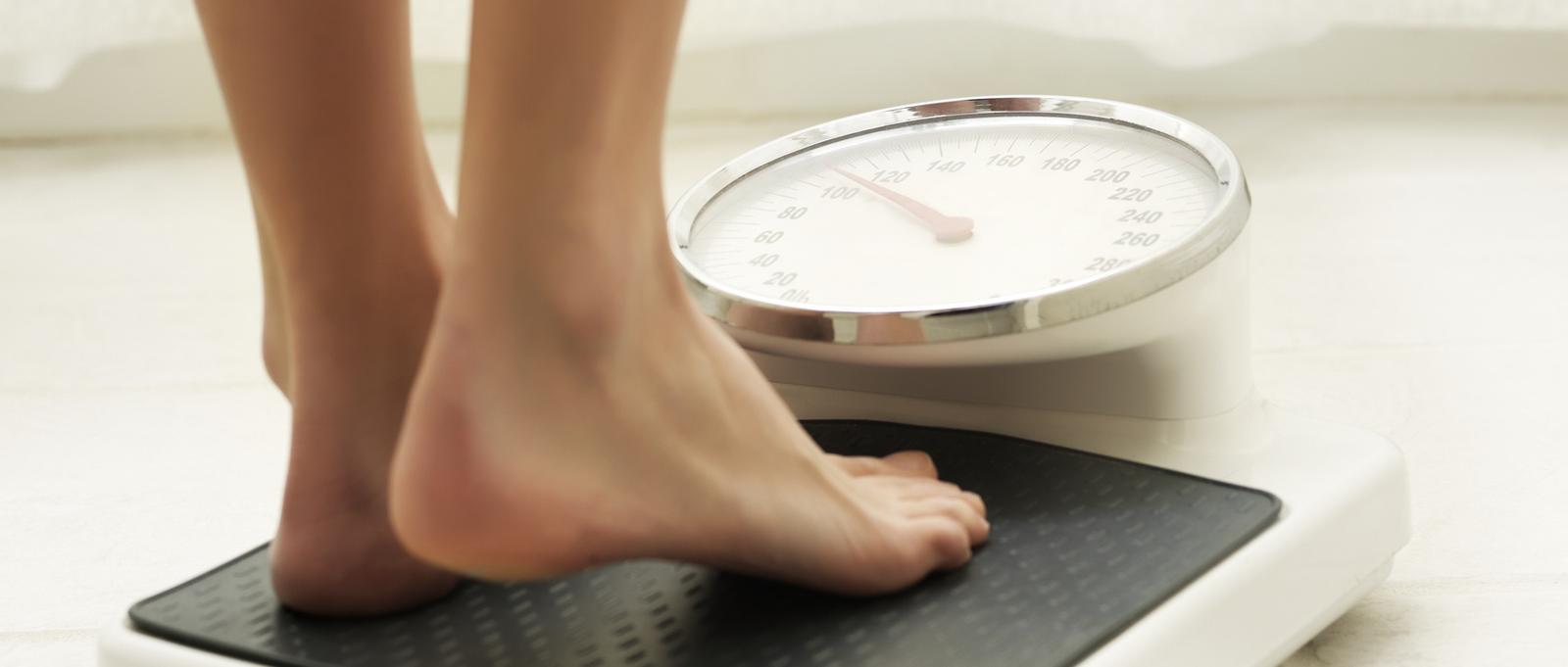
You don't have to be underweight to have an eating disorder
Peer reviewed by Dr Sarah Jarvis MBE, FRCGPAuthored by Sarah GrahamOriginally published 25 Jul 2019
- DescargarDescargar
- Compartir
Eating disorders affect around 1.25 million people in the UK, a quarter of whom are male, and less than 10% of whom are affected by anorexia. Yet the most common image of an eating disorder sufferer that persists in many people's minds is of a young, emaciated woman. It's a stereotype that's not just misleading, but also perpetuates harmful weight stigma and could prevent many people living with eating disorders from accessing the support they need.
En este artículo:
According to national eating disorder charity Beat, anorexia makes up just 8% of all eating disorder cases in the UK, while binge eating disorder is actually the most common - accounting for 22% of cases.
"You cannot tell if someone has an eating disorder just by looking at them," Beat states. "While it is true that some sufferers of anorexia are severely emaciated, some are not, and the majority of eating disorder sufferers do not have anorexia. Those suffering from bulimia may be within the normal weight range or may be overweight, while those with binge eating disorder are often overweight."
The problem with weight stigma, explains Beat spokesperson Jamie Osborn, is that "certain people don't fit the stereotype of what people think an eating disorder is, so they may not realise they have an eating disorder themselves, or may not realise that's actually something they can get treatment for".
Equally, he adds, they may try to seek help and be sent away on the grounds that they're either 'too fat' or 'not thin enough' to have an eating disorder - which can lead to eating disorder behaviours becoming more and more entrenched. "The sooner someone gets help, the better their chances of recovery. The longer you delay getting help, the more entrenched those behaviours become, and the harder recovery can be."
Seguir leyendo
#DumpTheScales
Despite NICE guidelines stating that BMI (body mass index) should never be the sole measure for the severity of an eating disorder, campaigners like Hope Virgo say the number on the scales is still too often used as a barrier to accessing treatment.
Hope suffered from anorexia between the ages of 12 and 17, and spent a year as a hospital in-patient before being discharged when she turned 18. As an adult, Hope says: "I managed my recovery up until 2016, and then I relapsed after my grandma passed away.
"I really struggled with the grief, and went back to that original coping mechanism of just not eating, and exercising too much. The strange thing was, I knew what was happening, and I knew that at any point I would completely lose that control."
Despite this, when Hope sought help for the return of her disordered eating behaviours, she was told her BMI was healthy, and so she wasn't eligible for any support. "I left that appointment feeling like a fake anorexic. Anorexia is a really competitive illness as it is, so when you're told you're not thin enough, that part of your brain automatically wants to start competing," she explains.
"I had to really struggle with all of that, and came very close to ending my life," she adds, explaining that the only help she was able to access through her GP was antidepressants - which, despite not normally being used to treat eating disorders, gave her the boost she needed to develop healthier coping strategies.
As a result of her experience, Hope launched a petition - which now has nearly 100,000 signatures - campaigning for the NHS to 'Dump the Scales'. "The reason I launched it was because I realised I'm not the only person who goes through that. There were so many people every single day being turned away from services for not being underweight, and there is no real focus on early intervention," she explains.
"There's this idea that to have anorexia you have to be stick thin, when actually it's a mental illness and it shouldn't be judged on someone's physical appearance," she adds. "I've come across people who've been turned away from services for not being underweight enough, and then they end up a month later being hospitalised. So they're then taking up a hospital bed on the NHS, which is going to cost more money, and their recovery time will be longer, than if you'd got in there early and stopped the eating disorder developing to that point."
Selección de pacientes para Trastornos alimentarios

Salud mental
¿Por qué aumenta la anorexia?
Más de 1,25 millones de personas en el Reino Unido padecen un trastorno alimentario, según una investigación de Beat, la principal organización benéfica británica dedicada a este tipo de trastornos, y la gran mayoría de los casos son mujeres jóvenes.
por Danny Chadburn

Salud mental
Anorexia nerviosa
Anorexia nervosa is an eating disorder. A person with anorexia nervosa feels compelled to control and lose weight and often finds that food dominates their life.
por la Dra. Hayley Willacy, FRCGP
Lack of resources and training
Part of the issue, Osborn says, is a lack of resources, and NHS commissioners using BMI to restrict access to support services to only the most severe cases. "Often the problem is that the commissioners set the criteria for accessing treatment, so they're the ones saying 'you have to have a BMI of below 17', or whatever it is. That's often dictated by the fact they feel they can't offer treatment to everyone because they don't have the resources," he explains.
"What we need is more training for doctors, and more resources for specialist services. There tends to be a focus currently on inpatient treatment, or only treating people when they're in urgent need of help," Osborn adds. "Focusing on treating people earlier, in outpatient settings and community treatment when they might not be at such a critically low weight, can actually save money. We really need to be investing in those sorts of treatment models."
Seguir leyendo
The forgotten eating disorder
On the other side of the same coin is the stigma faced by eating disorder sufferers who are overweight or obese. 35-year-old Meg began suffering with binge eating disorder (BED) when she was just 17, after a lifetime of pressure to lose weight from parents who restricted her eating.
"It was quite traumatic really, being hungry as a child and not having the power to do anything about it. I became an opportunistic, anxiety-driven eater, making the most of parties or going to a friend's house, and loading up while I could. I lost touch with my fullness and hunger signals, because I couldn't really act on them, and I internalised a lot of pressure to be thin - which I have never actually achieved - so I'd try to control my portions and things like that, but I'd always end up bingeing," she explains.
Meg's binge eating really became a problem when she first started attending a slimming club in her late teens, as suggested by her GP. As before, Meg found that she would stick to the programme up to a point but then binge as a 'ping back' reaction to her restrictive diet. However, it took ten years for her to access treatment for her eating disorder, because so much emphasis was placed on encouraging her to lose weight.
"It was very motivated by weight. A lot of people who have binge eating disorder don't necessarily recognise it, and doctors don't necessarily probe for it," she explains. "When I was 28 I had to be really insistent with my doctor, and say 'look, I've tried this, I've tried that'. I feel like you have to pay your dues with lots of failed diets first, and then you can say 'look, I've tried fixing my body, now I have to try to fix my mind because obviously that's the problem'."
Even within eating disorder services though, she found the focus on weight loss really difficult - particularly when, despite reducing her bingeing behaviours, her weight plateaued. Instead, she wishes there was more recognition of the fact that eating disorders are much more to do with your behaviours, and what's going on in your head, than what you weigh or what you look like.
"I'm the most mentally well I've ever been, and I have a much more normal relationship with food now. But I'm still in a larger body, which is difficult. I feel like I have to justify myself; like people assume I must still be doing something wrong," she says.
Historia del artículo
La información de esta página ha sido revisada por médicos cualificados.
25 Jul 2019 | Originally published
Autores:
Sarah GrahamRevisado por expertos
Dra. Sarah Jarvis MBE, FRCGP

Pregunte, comparta, conecte.
Explore debates, formule preguntas y comparta experiencias sobre cientos de temas de salud.

¿Se encuentra mal?
Evalúe sus síntomas en línea de forma gratuita